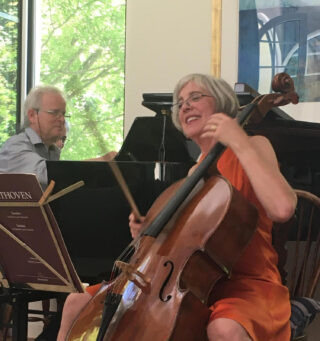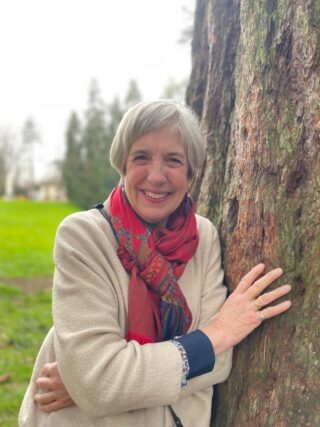The Last Supper
07 Jul
When the leaders of the G7 met last month in the UK, like all significant meals in history, the menu was chosen carefully. A select mixture of Cornish turbot caught off Newquay, of Cornish cheeses, petits-fours with clotted cream fudge, all carefully sourced local produce, the fish choices reflecting the maritime nature of the Cornish coast, the Clotted cream teas carefully reflective of local history and culture.
Even the curated beach barbecue served a function - to provide at least a nod toward the informal and friendly nature of the gathering, clashing rather crudely with sight of elected officials navigating the sand in bespoke wool suits and leather brogues. Of course, this much is for show. Burning under the barbecue was the underlying question of climate and COP-26, a renewed priority for the American president and no less vital for the UK with the most important climate summit of our lifetimes due in Glasgow later this year.
It is forecast that globally, between 2030-2050, we will consume more food than has ever been consumed in the history of humankind; it is reckoned that we have but nine seasons left to us before planetary boundaries kick back irreversibly.
The G7 meeting seemed, then, to lack a certain urgency. Collectively, we undoubtedly possess the scientific and financial tools to correct course. What was missing from Carbis Bay were the cultural and moral values necessary to make urgent use of these tools.
On the 21st May 2021, Reboot the Future and Listening Inspires hosted a Food Systems Summit Dialogue, as a contribution to the preparations of the Food Systems Summit called for by the Secretary General of the United Nations this coming autumn. The theme of this Dialogue? “Transforming Food Systems with the Golden Rule: from Listening to Action”.
The dialogue brought together scientists, farmers, writers, academics and activists to ask where these values might reside. Unlike the G7, our summit saved on carbon by being hosted online.
A core theme running across the dialogue was that of VALUE. Food has a central role in everything we do: our psychology, legislation, economics, domesticity, cities and culture, etc. Yet we have built a system in which our primary demand is that food is produced as cheaply as possible. In doing so, we have conspired in the devaluation of every aspect of society that food touches - which is to say, every part of it.
So how best to change the currency of value within our current food systems? The lack of agency for every stakeholder within our current system was a recurring theme. We are ‘locked in’ by our roles as producers and consumers. We find it almost impossible to consider what our roles might be in a system which doesn’t consume more than it provides.
We need to see beyond the fantasy ideology of never-ending, continuous growth.
What emerged across the six discussions was the necessity of a new alignment founded on a core EMPATHY. This quality arose in the discussion under multiple different names: reciprocity, the Golden Rule, listening, and even, simply, Love. Love – maternal and paternal protection and development of children, neighbours, or any other parts of our community requiring nurture and symbiosis – is obviously useful.
Discourse around food is most powerful when it invokes a sacred spirit. We are in symbiosis with the fate of our blue planet. To care for the Earth is not to be transactional.
Two principal themes emerged in this discussion of empathy.
The first priority cuts across different functions and cultural practices and goes beyond the traditional top-down approach to encompass different hierarchies: Everything we can see across our networks; our partnerships; our capacity to foster understanding; to embed ourselves through neighbouring networks, through a sense of place, locus genii; even empathy to the level garden and an intimate relationship with the soil; an understanding of where are the principal watersheds and natural bio-markers of the Earth.
The second looks longitudinally over time, where we embed an understanding of what has preceded us in the lives of our ancestors, and what kind of world we will leave to our children; what the compact is between different generations, with the rights of the child at the heart of our future; our sense of deep geological time; the question of what kind of values we inherit in our education from our ancestors and pass onto our descendants through education; an identification of the recurring indigenous cultural memes which have sustained our forebears and what kind of spiritual practices sustained them in the primeval forests and the cave.
A constant emphasis was made on investment in energy at the human level within the neighbourhood, public institutions, and local authorities. Our current retail system of food is too centralised by a small number of institutions and corporations. The gap from farm to fork is too thinly stretched, to the point where Producers and Consumers are entirely alien to one another, and have a one-way relationship, a broadcast rather than a dialogue.
We require, then, a more participatory approach, engaging key food scientists, cultural leaders, caregivers, food growers, processors and consumers in a joint benchmarking exercise which also forms a cultural narrative. Industrial farmers have no connection to those who consume their produce; their only connections are with large, multinational corporations. This dialogue must be available to every participant.
The key is reconnection. And the transition must be equitable.
Our dialogue touched repeatedly on the importance of ancient indigenous practices and regenerative practices - with a recurring reminder that spiritual wisdom must have its place. We can understand the sanctity of our relationship with the earth through a reverent approach to how we consume its fruits.
From this, will emerge a cultural narrative which can be scientifically verified, is culturally sensitive and transmissible, and safe and nutritious.
As we begin to understand that we must give back to the Earth more than we take each time; then we see that we have to give to the future slightly more each time, and honour the past as we do so.
Learn more about our Food Systems Summit Dialogue “Transforming Food Systems with the Golden Rule: from Listening to Action" here!
Learn More

